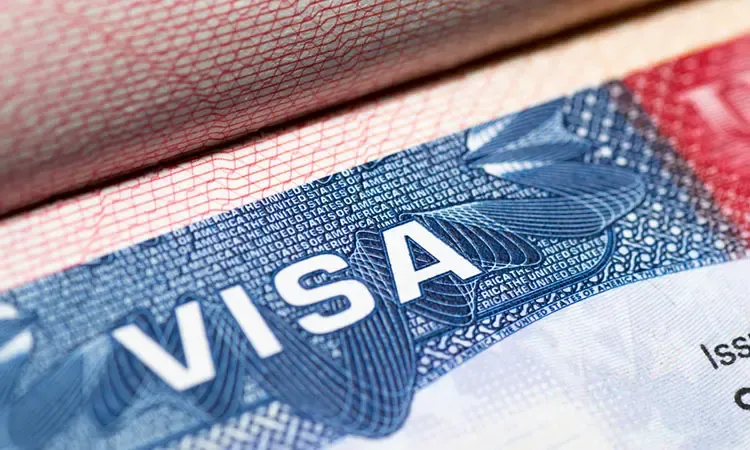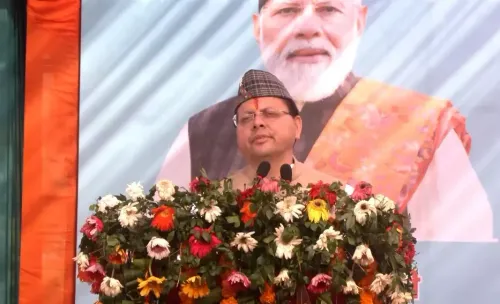Should US Tech Firms Urge H-1B Visa Workers to Return Before Sunday Deadline?

Synopsis
Key Takeaways
- US tech firms are urging H-1B workers to return before the deadline.
- The new $100,000 annual fee will impact visa holders significantly.
- Approximately 71% of H-1B visa holders are from India.
- Companies like Microsoft and JPMorgan are advising against international travel.
- The fee could hinder talent mobility and innovation.
New Delhi, Sep 20 (NationPress) Major US technology companies, including Microsoft, have called upon their employees holding H-1B and H-4 visas who are currently outside the country to return without delay, prior to the impending September 21 deadline established by President Donald Trump, when the $100,000 annual fee for H-1B visas will come into effect.
The US government has enacted a $100,000 yearly fee applicable to each visa, which will be implemented on September 21 and will remain in effect for a duration of 12 months, as stated by the President.
Reports indicate that firms such as Microsoft and JPMorgan have advised H-1B workers currently residing in the US to maintain their employment in the country “for the foreseeable future” and to refrain from international travel until further notice.
Additionally, Microsoft has reportedly suggested that H-4 visa holders stay in the US. “We strongly recommend H-1B and H-4 visa holders return to the US tomorrow before the deadline,” the company stated.
As of now, there has been no formal announcement from either Microsoft or JPMorgan.
President Trump anticipates that the updated fee-based visa strategy will yield over $100 billion for the US Treasury, which is earmarked for national debt reduction and tax concessions. Critics, however, argue that this new fee could obstruct talent mobility and inhibit innovation.
Approximately 71% of H-1B visa holders hail from India, primarily employed by technology firms such as Infosys, Wipro, Cognizant, and Tata Consultancy Services.
Following the announcement, stocks of significant IT service companies, including US-listed Indian firms, experienced a decline of 2% to 5%.
Given that visas are typically valid for three years and can be renewed for up to six years, the new $100,000 annual fee may render it costly for companies to retain Indian professionals, particularly due to the extensive waiting period for Green Cards.
The H-1B program facilitates US companies in hiring skilled foreign workers in sectors such as technology and engineering.









